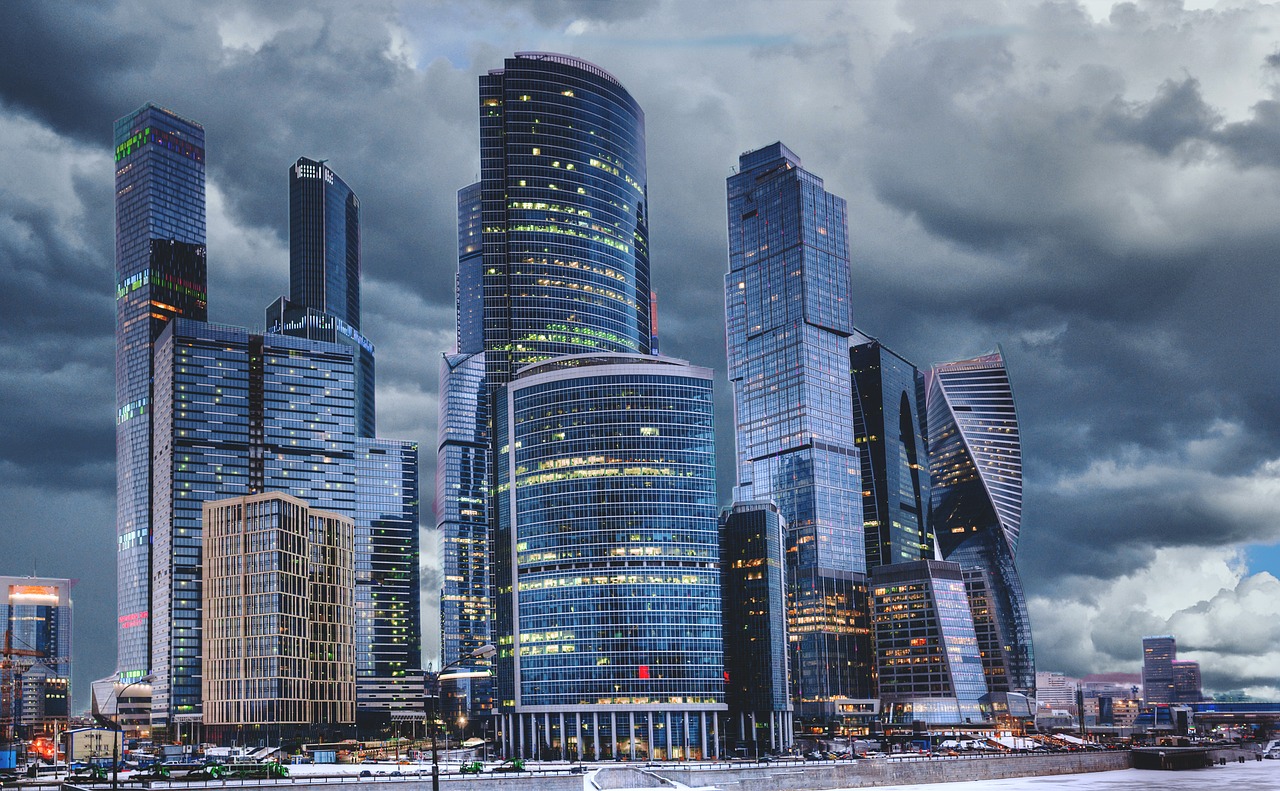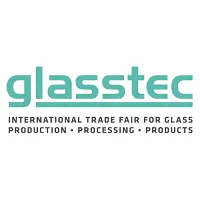
Latest NEWS
Shaping the Future of Glass: Exploring the Top 5 Key Trends at glasstec Düsseldorf 2024

Innovative Glass Manufacturing Technologies at glasstec Düsseldorf 2024
Innovative Glass Manufacturing Technologies at glasstec Düsseldorf 2024

One of the key trends that will be explored at glasstec Düsseldorf 2024 is the use of advanced robotics in glass manufacturing. Robots have already made significant inroads in various industries, and the glass sector is no exception. These machines offer unparalleled precision and efficiency, allowing for the creation of complex glass structures that were once thought impossible. At the trade fair, attendees can expect to see demonstrations of robots seamlessly cutting, shaping, and assembling glass components with remarkable speed and accuracy.
Another trend that will be showcased at glasstec Düsseldorf 2024 is the integration of artificial intelligence (AI) in glass manufacturing processes. AI has the potential to revolutionize the industry by optimizing production workflows, reducing waste, and improving product quality. By analyzing vast amounts of data in real-time, AI algorithms can identify patterns and make informed decisions, leading to more efficient and cost-effective manufacturing processes. Visitors to the trade fair can expect to witness AI-powered machines that can detect defects in glass products and automatically adjust production parameters to ensure consistent quality.
In addition to robotics and AI, glasstec Düsseldorf 2024 will also highlight the growing trend of 3D printing in glass manufacturing. 3D printing has already made significant strides in various industries, and its application in the glass sector is no exception. This technology allows for the creation of intricate glass structures with unprecedented design freedom. At the trade fair, attendees can expect to see 3D printers capable of producing complex glass objects, such as architectural facades and decorative elements, with remarkable precision and detail.
Furthermore, glasstec Düsseldorf 2024 will showcase advancements in the field of smart glass. Smart glass, also known as switchable glass, has the ability to change its properties in response to external stimuli, such as light, heat, or an electrical current. This technology offers a wide range of applications, from energy-efficient windows that can regulate the amount of sunlight entering a building to privacy glass that can switch from transparent to opaque at the touch of a button. Visitors to the trade fair can expect to see demonstrations of smart glass products that are not only functional but also aesthetically pleasing.
Last but not least, glasstec Düsseldorf 2024 will explore the use of sustainable manufacturing practices in the glass industry. As the world becomes increasingly conscious of the need to reduce carbon emissions and minimize waste, glass manufacturers are embracing sustainable solutions. At the trade fair, attendees can expect to see innovative technologies that enable the recycling and repurposing of glass waste, as well as the use of renewable energy sources in the production process. These sustainable practices not only benefit the environment but also contribute to the overall competitiveness and profitability of glass manufacturers.
In conclusion, the glasstec Düsseldorf 2024 trade fair will be a platform for showcasing the top trends in innovative glass manufacturing technologies. From advanced robotics and artificial intelligence to 3D printing and smart glass, these technologies are set to shape the future of the glass industry. Moreover, the emphasis on sustainability highlights the industry’s commitment to reducing its environmental footprint. As attendees explore the exhibition halls, they will witness firsthand the transformative power of these technologies and gain valuable insights into the future of glass production.
Energy-Efficient and Smart Glass Solutions: Shaping the Future of Glass
Shaping the Future of Glass: Exploring the Top 5 Key Trends at glasstec Düsseldorf 2024
The glass industry has always been at the forefront of innovation, constantly pushing the boundaries of what is possible. As we look towards the future, it is clear that energy-efficient and smart glass solutions will play a crucial role in shaping the glass industry. At glasstec Düsseldorf 2024, the world’s leading trade fair for the glass industry, these trends were on full display, showcasing the latest advancements in this field.
One of the key trends that emerged at glasstec Düsseldorf 2024 was the increasing focus on energy-efficient glass solutions. With sustainability becoming a top priority for businesses and consumers alike, glass manufacturers are investing heavily in developing products that reduce energy consumption. These energy-efficient glass solutions not only help to lower carbon emissions but also offer significant cost savings for users.
Another trend that was evident at the trade fair was the rise of smart glass solutions. Smart glass, also known as switchable glass, has the ability to change its properties based on external stimuli such as light, heat, or voltage. This technology has a wide range of applications, from privacy windows that can be instantly opaque to dynamic facades that adjust their transparency based on the weather conditions. The versatility of smart glass makes it an exciting prospect for architects and designers looking to create innovative and interactive spaces.
In addition to energy efficiency and smart glass, glasstec Düsseldorf 2024 also showcased advancements in self-cleaning glass. This technology utilizes a thin coating that breaks down organic dirt and prevents it from adhering to the glass surface. Self-cleaning glass not only reduces the need for manual cleaning but also maintains its transparency and aesthetic appeal for longer periods. This trend is particularly relevant in urban environments where pollution and dirt can quickly accumulate on glass surfaces.
Furthermore, the trade fair highlighted the growing importance of glass in the automotive industry. With the rise of electric and autonomous vehicles, glass manufacturers are developing solutions that enhance the functionality and safety of automotive glass. This includes innovations such as heads-up displays, augmented reality windshields, and lightweight glass materials that improve fuel efficiency. The integration of glass technology in vehicles is set to revolutionize the driving experience and pave the way for the future of mobility.
Lastly, glasstec Düsseldorf 2024 showcased the increasing use of glass in sustainable architecture. Glass facades and windows not only provide natural light and stunning views but also contribute to energy efficiency by reducing the need for artificial lighting and heating. The trade fair featured advancements in energy-efficient glazing systems, such as triple glazing and vacuum glazing, which offer superior thermal insulation properties. These innovations are driving the adoption of glass in sustainable building design, creating greener and more comfortable living and working spaces.
In conclusion, glasstec Düsseldorf 2024 provided a glimpse into the future of the glass industry, highlighting the key trends that will shape its trajectory. Energy-efficient and smart glass solutions, self-cleaning glass, advancements in automotive glass, and the use of glass in sustainable architecture were among the top trends showcased at the trade fair. As the industry continues to innovate and push boundaries, we can expect to see even more exciting developments in the years to come.
Architectural and Decorative Glass Applications: Trends at glasstec Düsseldorf 2024
Shaping the Future of Glass: Exploring the Top 5 Key Trends at glasstec Düsseldorf 2024
Architectural and Decorative Glass Applications: Trends at glasstec Düsseldorf 2024
The glasstec Düsseldorf trade fair is a highly anticipated event in the glass industry, bringing together professionals from around the world to showcase the latest innovations and trends. As we look ahead to the 2024 edition of glasstec Düsseldorf, it is clear that architectural and decorative glass applications will play a significant role in shaping the future of the industry. In this article, we will explore the top five key trends that are expected to dominate the event.
First and foremost, sustainability will be a major focus at glasstec Düsseldorf 2024. With increasing concerns about climate change and environmental impact, the glass industry is under pressure to develop more sustainable solutions. This includes the use of recycled glass, energy-efficient manufacturing processes, and the development of glass products that contribute to energy savings in buildings. Visitors can expect to see a wide range of eco-friendly glass options that not only meet sustainability goals but also offer aesthetic appeal.
Another trend that will be on display at glasstec Düsseldorf 2024 is the integration of smart technology into glass applications. As the world becomes more connected, glass is being transformed into a medium for communication and interaction. From smart windows that can adjust their tint based on sunlight to interactive glass surfaces that can display information or respond to touch, the possibilities are endless. This trend not only enhances the functionality of glass but also opens up new opportunities for architects and designers to create innovative and dynamic spaces.
In addition to sustainability and smart technology, glasstec Düsseldorf 2024 will showcase the growing trend of incorporating art and design into architectural glass applications. Glass has long been admired for its beauty and versatility, and now artists and designers are pushing the boundaries of what is possible. Visitors can expect to see stunning glass installations, intricate patterns, and unique textures that transform ordinary spaces into works of art. This trend not only adds visual interest but also allows for customization and personalization in architectural design.
Furthermore, glasstec Düsseldorf 2024 will highlight the importance of safety and security in glass applications. As glass is used in increasingly larger and more complex structures, ensuring the safety of occupants is paramount. This includes the development of impact-resistant glass, fire-resistant glass, and glass that can withstand extreme weather conditions. Visitors can expect to see demonstrations and presentations on the latest advancements in safety and security glass, providing reassurance that glass can be both beautiful and safe.
Lastly, glasstec Düsseldorf 2024 will showcase the trend of incorporating sustainability and technology into decorative glass applications. Decorative glass is no longer limited to traditional patterns and designs. Instead, it is being used to create unique and eye-catching features in both residential and commercial spaces. From backlit glass panels to digitally printed glass, visitors can expect to see a wide range of decorative glass options that combine aesthetics with functionality.
In conclusion, glasstec Düsseldorf 2024 promises to be an exciting event for the architectural and decorative glass industry. With a focus on sustainability, smart technology, art and design, safety and security, and decorative applications, the future of glass is being shaped in innovative and dynamic ways. Whether you are an architect, designer, or glass enthusiast, this event is not to be missed. So mark your calendars and get ready to explore the top five key trends at glasstec Düsseldorf 2024.
Glass Recycling and Sustainability Initiatives: Key Focus at glasstec Düsseldorf 2024
Glass Recycling and Sustainability Initiatives: Key Focus at glasstec Düsseldorf 2024
As the world becomes increasingly aware of the need for sustainable practices, the glass industry is stepping up to the challenge. At glasstec Düsseldorf 2024, one of the top five key trends shaping the future of glass is the focus on glass recycling and sustainability initiatives. This article will explore the importance of these initiatives and how they are being implemented in the industry.
Glass recycling has long been recognized as an effective way to reduce waste and conserve resources. However, at glasstec Düsseldorf 2024, the emphasis is not only on recycling glass but also on finding innovative ways to reuse and repurpose it. This shift in focus reflects the industry’s commitment to circular economy principles, where materials are kept in use for as long as possible.
One of the main challenges in glass recycling is the separation of different types of glass. Different colors and compositions require different recycling processes, making it difficult to achieve a high recycling rate. However, at glasstec Düsseldorf 2024, new technologies and sorting systems are being showcased that can effectively separate and process different types of glass. This advancement is a significant step towards achieving a more sustainable glass industry.
In addition to recycling, the industry is also exploring ways to reduce the environmental impact of glass production. Energy consumption and carbon emissions are major concerns, and at glasstec Düsseldorf 2024, manufacturers are showcasing energy-efficient technologies and processes. From advanced furnace designs to optimized production methods, these innovations are helping to minimize the industry’s carbon footprint.
Another key focus at glasstec Düsseldorf 2024 is the development of sustainable packaging solutions. Glass has long been favored for its recyclability and durability, but there is still room for improvement. The industry is investing in research and development to create packaging that is not only environmentally friendly but also meets the demands of modern consumers. From lightweight designs to innovative closures, these advancements are revolutionizing the way glass is used in packaging.
Furthermore, the industry is also exploring the use of recycled glass in new product applications. By incorporating recycled glass into manufacturing processes, companies can reduce their reliance on virgin materials and contribute to a more circular economy. At glasstec Düsseldorf 2024, manufacturers are showcasing products made from recycled glass, ranging from architectural glass to consumer goods. This trend not only reduces waste but also adds value to recycled glass, making it a more attractive option for businesses.
In conclusion, glass recycling and sustainability initiatives are taking center stage at glasstec Düsseldorf 2024. The industry is committed to finding innovative ways to recycle, reuse, and repurpose glass, while also reducing the environmental impact of production. From advanced sorting systems to energy-efficient technologies, manufacturers are showcasing the latest advancements in glass recycling and sustainability. By focusing on these key trends, the glass industry is shaping a more sustainable future for itself and the planet.
Digitalization and Automation in the Glass Industry: Exploring the Future Trends at glasstec Düsseldorf 2024
The glass industry has always been at the forefront of innovation, constantly pushing the boundaries of what is possible. As we look towards the future, it is clear that digitalization and automation will play a crucial role in shaping the glass industry. At glasstec Düsseldorf 2024, the world’s leading trade fair for the glass industry, these trends will be explored in depth. In this article, we will delve into the top 5 key trends in digitalization and automation that will be showcased at glasstec Düsseldorf 2024.
The first trend that will be highlighted at glasstec Düsseldorf 2024 is the use of artificial intelligence (AI) in glass manufacturing. AI has the potential to revolutionize the industry by optimizing production processes, improving quality control, and reducing costs. From automated inspection systems that can detect defects in glass to predictive maintenance algorithms that can prevent machine breakdowns, AI is set to transform the way glass is manufactured.
Another trend that will be explored at glasstec Düsseldorf 2024 is the integration of robotics in glass production. Robots have already made significant inroads in various industries, and the glass industry is no exception. Robotic arms can be used to handle and manipulate glass with precision and speed, reducing the risk of human error and increasing productivity. At the trade fair, visitors will have the opportunity to witness firsthand the capabilities of these advanced robotic systems.
In addition to AI and robotics, the use of big data analytics will also be a key trend at glasstec Düsseldorf 2024. With the advent of Industry 4.0, glass manufacturers are collecting vast amounts of data from their production processes. By analyzing this data, manufacturers can gain valuable insights into their operations, identify areas for improvement, and make data-driven decisions. From optimizing energy consumption to predicting customer demand, big data analytics has the potential to revolutionize the glass industry.
The fourth trend that will be showcased at glasstec Düsseldorf 2024 is the adoption of digital twin technology. A digital twin is a virtual replica of a physical object or system, and it can be used to simulate and optimize various aspects of glass production. By creating a digital twin of a glass manufacturing plant, manufacturers can test different scenarios, identify bottlenecks, and optimize their processes before implementing them in the real world. This technology has the potential to significantly reduce costs and improve efficiency in the glass industry.
Lastly, the use of augmented reality (AR) and virtual reality (VR) in glass manufacturing will also be explored at glasstec Düsseldorf 2024. AR and VR technologies can be used to enhance training programs, allowing workers to learn and practice complex tasks in a safe and immersive environment. These technologies can also be used for remote assistance, enabling experts to guide technicians through complex procedures without being physically present. By leveraging AR and VR, glass manufacturers can improve training, reduce downtime, and increase overall productivity.
In conclusion, digitalization and automation are set to transform the glass industry, and glasstec Düsseldorf 2024 will be the platform to showcase the latest trends in these areas. From the use of AI and robotics to the adoption of big data analytics and digital twin technology, the future of glass manufacturing is exciting and full of possibilities. By embracing these trends, glass manufacturers can stay ahead of the curve and shape the future of the industry.



